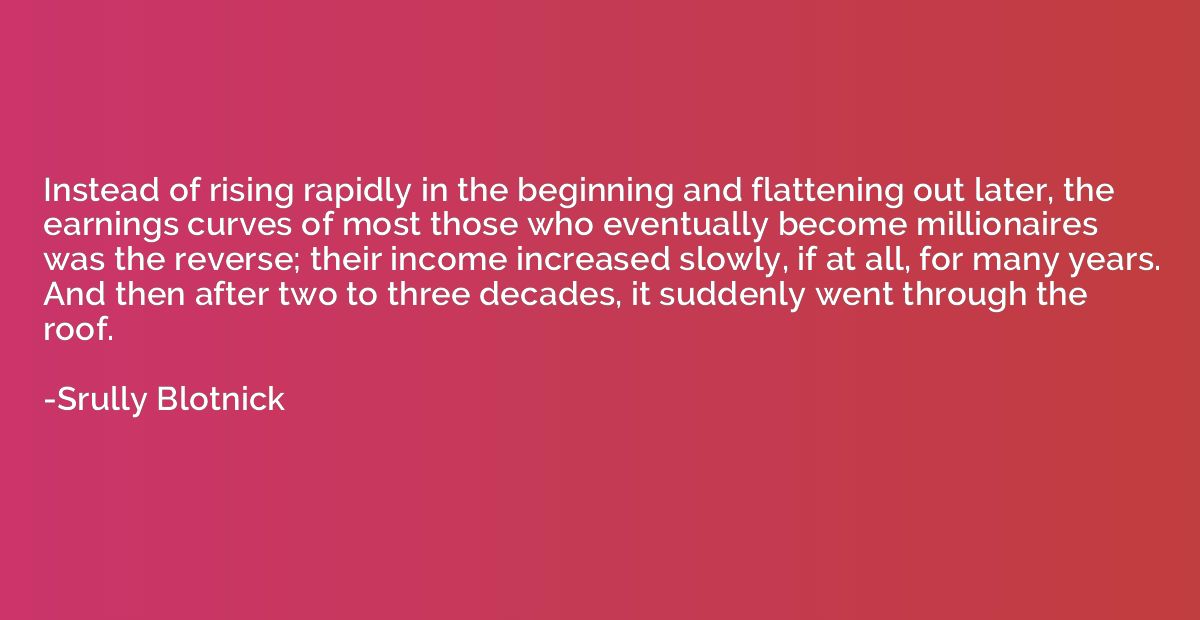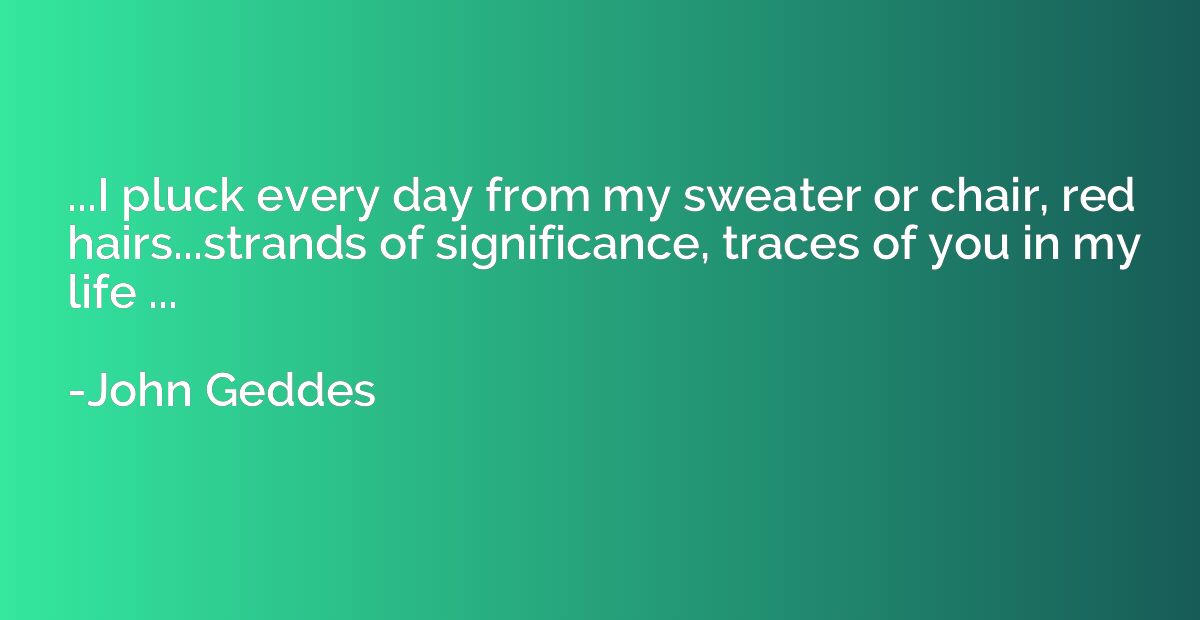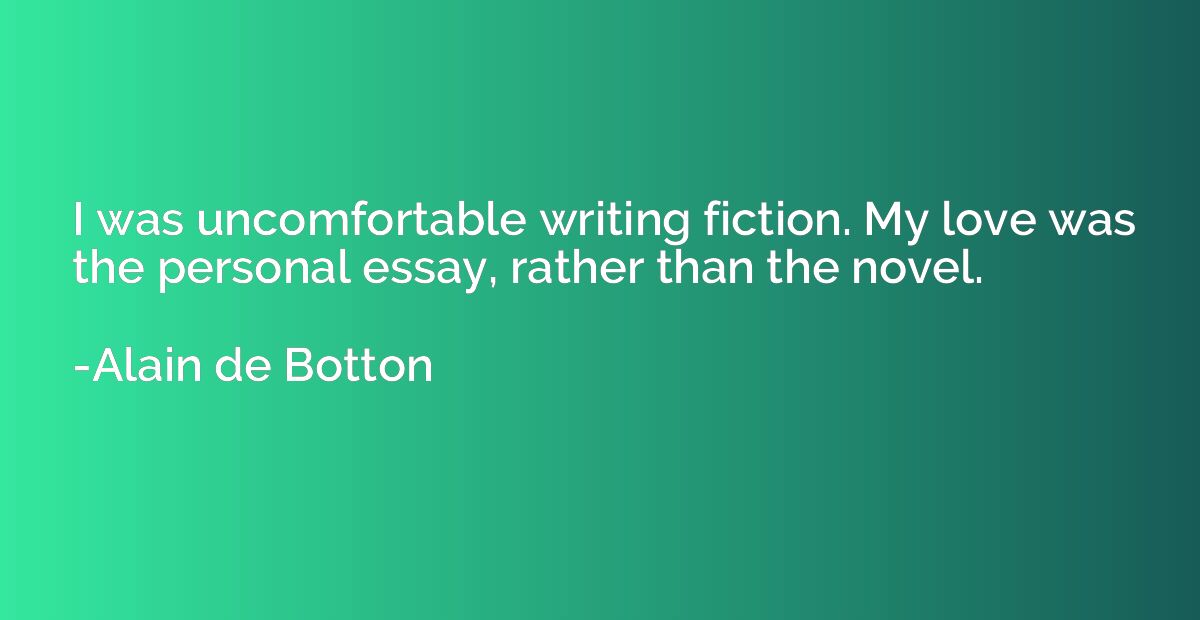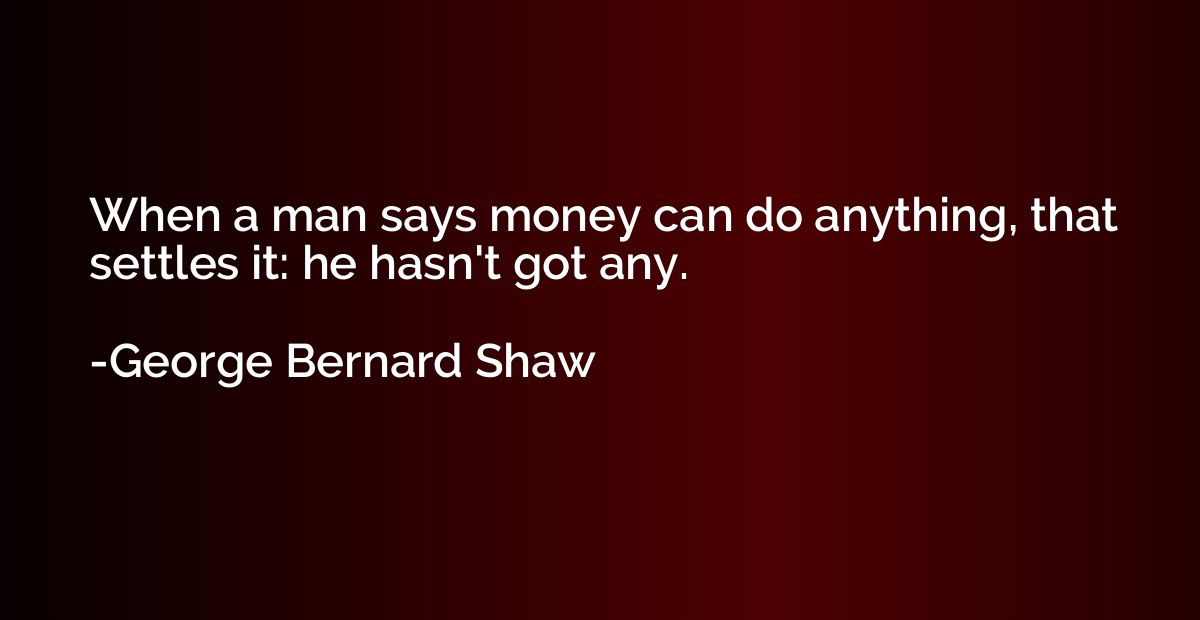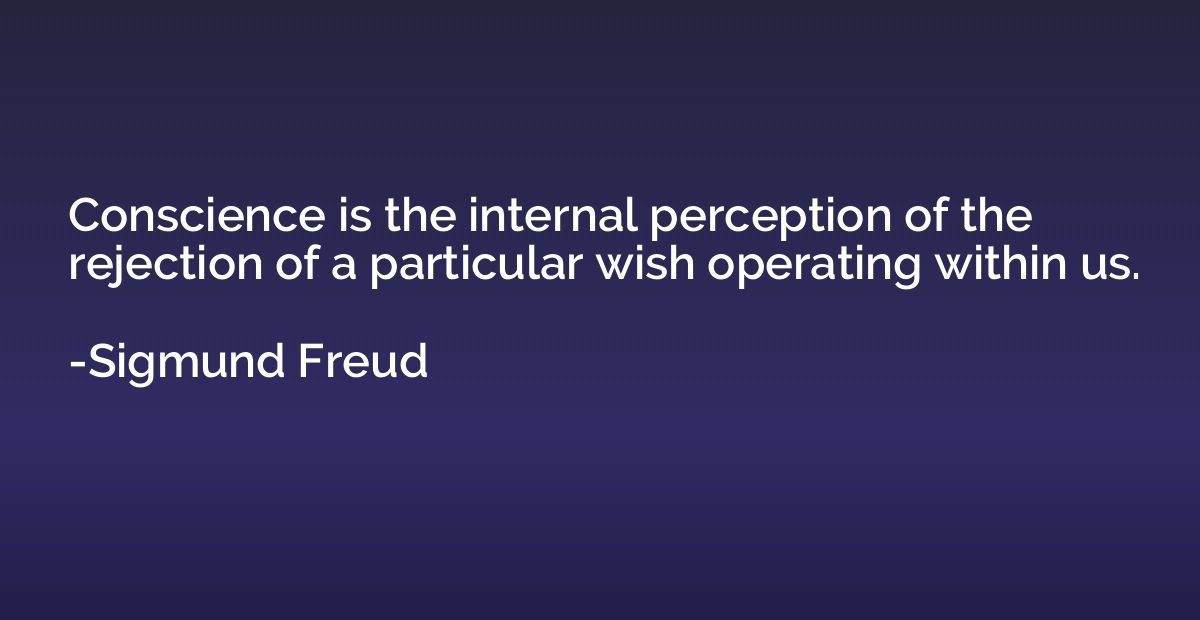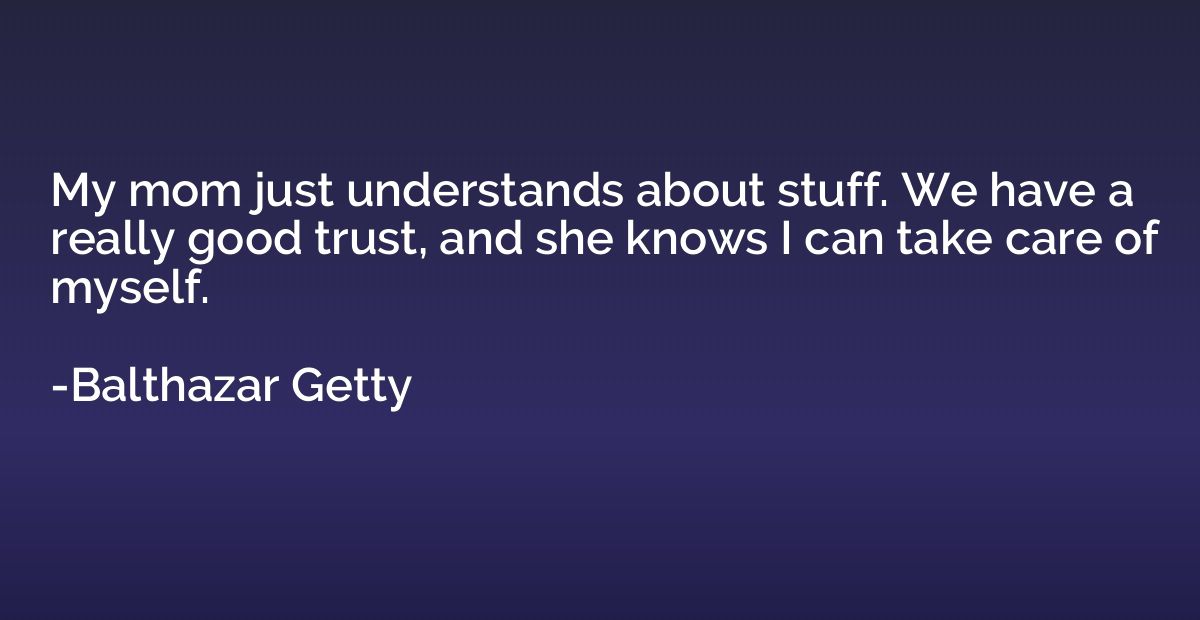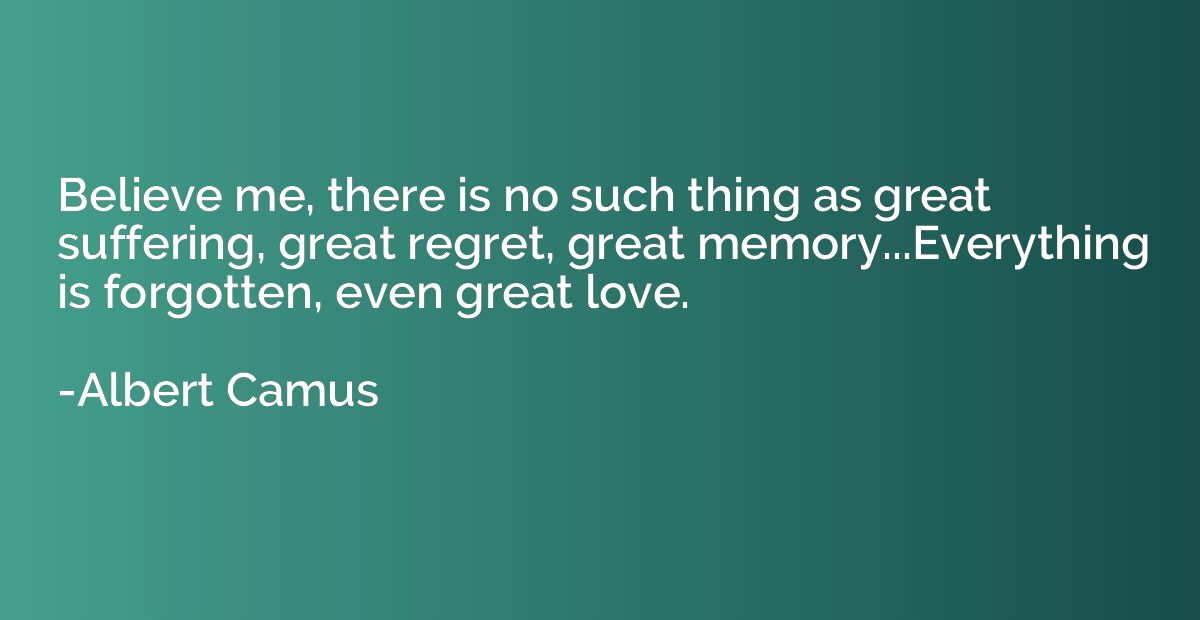Quote by Humphry Davy
Life is made up, not of great sacrifices or duties, but of little things, in which smiles and kindness, and small obligations given habitually, are what preserve the heart and secure comfort.
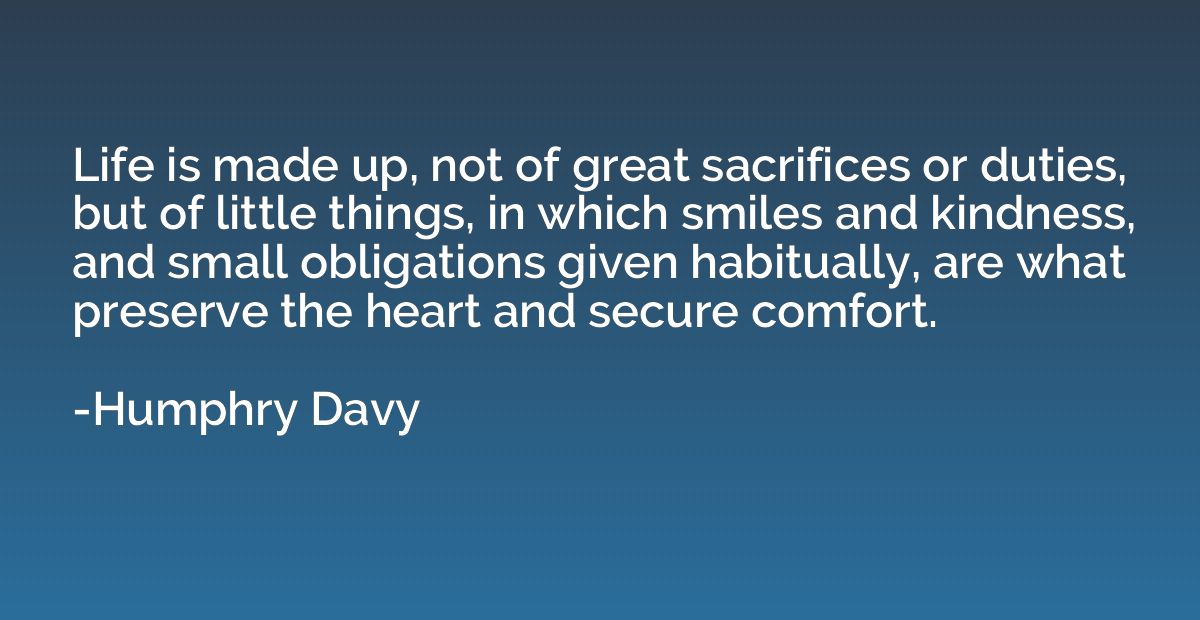
Summary
This quote emphasizes that the essence of a fulfilling life lies in the little things, rather than grand gestures or overwhelming responsibilities. It suggests that consistent acts of kindness, genuine smiles, and fulfilling small obligations are the key to maintaining a warm heart and ensuring comfort. It highlights the significance of these simple gestures in preserving one's emotional well-being and overall contentment.
Topics
Great
By Humphry Davy



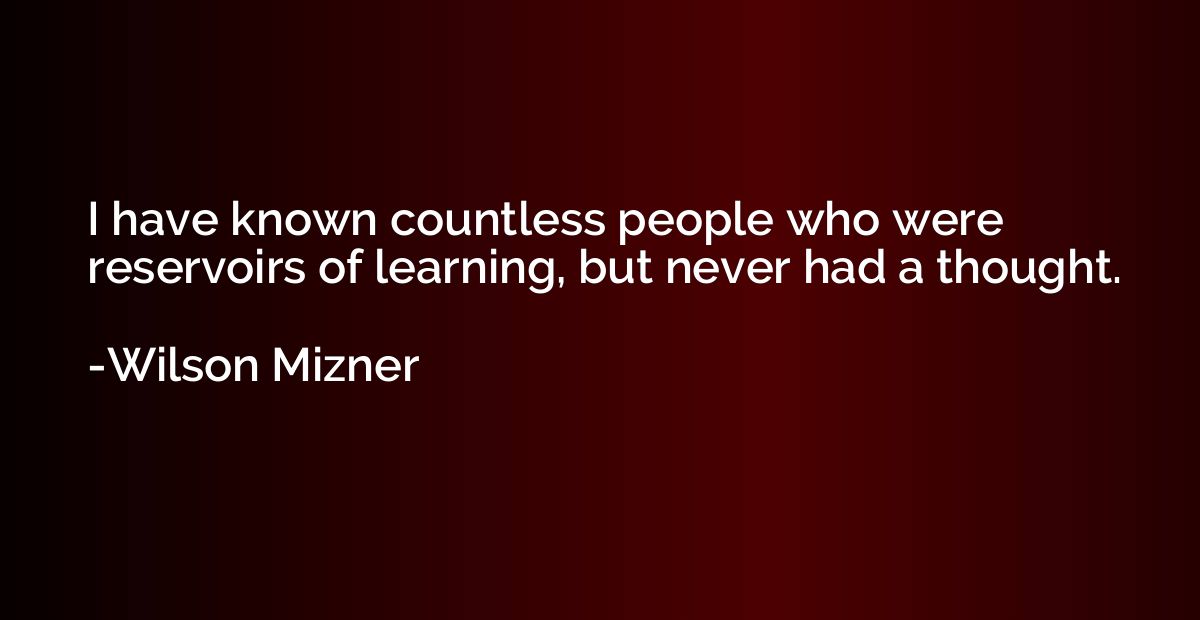
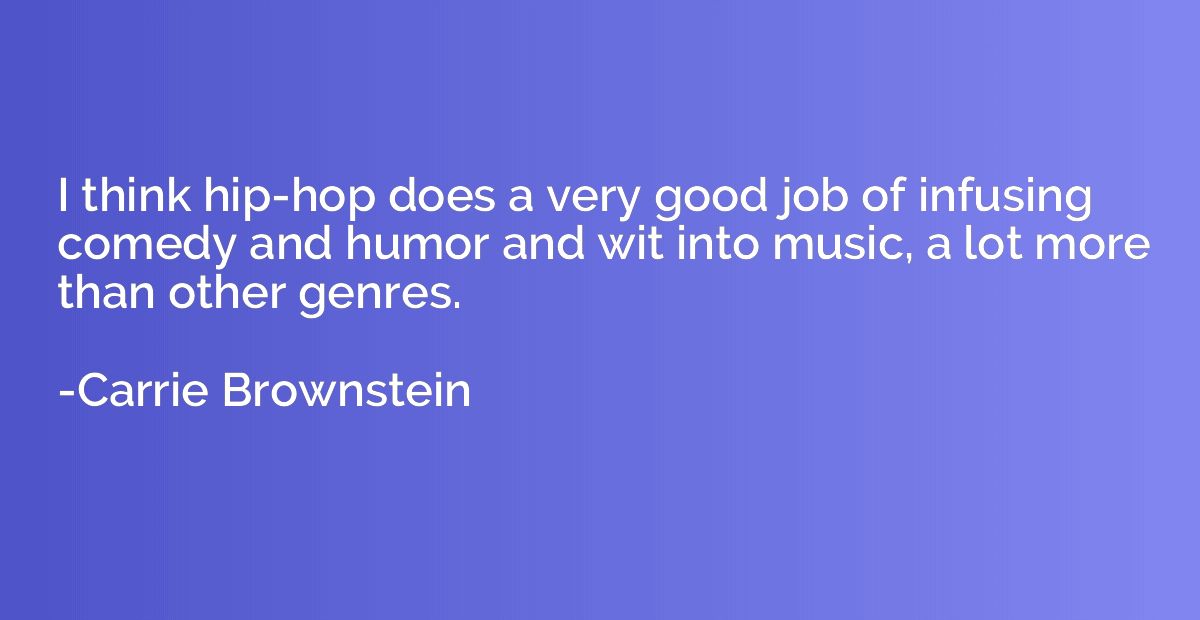
![[from ]For a historian considering the achievement of a cert](https://quotation.io/quotes/historian-considering-achievement-certain.jpg)
